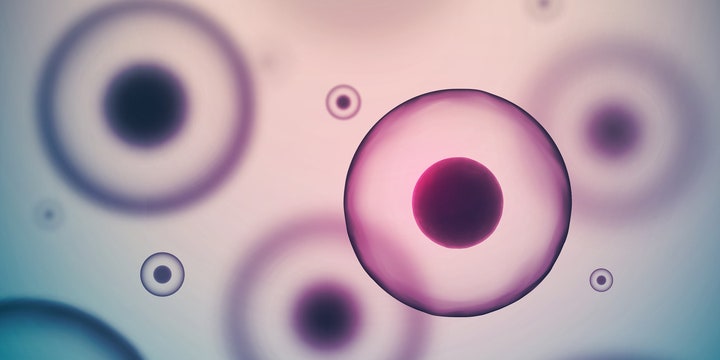Environmental factors could also be at play. This includes antibiotic overuse, which can mess with the balance of healthy bacteria in our guts. In that same vein, researchers suspect that diets with more highly processed meats and fats, and fewer vegetables and fruits, could be linked to gut inflammation (and possibly speed up tumor growth in the intestines).
An increase in alcohol consumption could be another problem, because it’s a risk factor for breast, colorectal, and certain other cancers. Too much time sitting still, whether it’s on your couch, in your car, or in front of screens is another. (Regular exercise is tied to lower risks of a bunch of cancers.) Dr. Kupfer says that chemicals in our food, air, water, or household products could be involved—there’s evidence some can disrupt our hormones or, again, mess with gut bacteria. As one example, some chemicals found in foods or food packaging, medications, and some personal care products—like phthalates, parabens, and phenols—are considered possible “endocrine (hormone) disruptors.” But researchers are still trying to figure out if they really up a person’s cancer risk.
For some cancers, like breast, increased screening might be causing the uptick—which is a good thing, Dr. Schwer says. People at higher-than-average risk (because of a strong family history of breast cancer or certain genetic mutations, for instance) are now advised to start screening earlier than age 40, so we are catching some cancers earlier. As Dr. Kupfer puts it, there’s probably some “perfect storm” of different factors driving the rise.
Eight body changes that can sometimes signal cancer.
Though, again, you’re more likely to not get cancer as a young person than to develop it, Dr. Van Loon says it’s important to have a good sense of your “normal” to judge when something’s off. Here are a few common cancer signs to look out for.
1. You have lumps that aren’t going away.
If a lump in your breast, neck, armpit—anywhere—doesn’t go away within 30 days, get it checked out, Tiago Biachi, MD, PhD, a medical oncologist at Moffitt Cancer Center, in Tampa, tells SELF. He notes that when lymph nodes are swollen due to cancer, they may not hurt (unlike swollen nodes due to an infection, which can be painful to touch).
2. Your bathroom habits have changed recently.
When blood is in your poop or pee, it can sometimes signal colorectal or kidney cancers, while abnormal bleeding between periods, or super-heavy periods, can be a sign of cervical, endometrial, or ovarian cancers. Cancers higher up in the GI tract, including stomach, liver, and pancreatic cancers, can cause chronic acid reflux and indigestion, stomach pain or nausea, and bloating. Ovarian and colorectal cancers can also cause bloating and/or belly pain. Of course, digestive woes are incredibly common and probably aren’t cancer. But if they’re hanging on for more than two weeks, it’s wise to call your doctor.
3. You’re constantly exhausted.
Many cancers can cause fatigue—which basically means feeling knocked out by your normal life, no matter how much you rest. Sometimes, Dr. Van Loon explains, fatigue happens because of bleeding that leads to anemia (where your body doesn’t have enough oxygen-carrying red blood cells). But the cancer itself can also be to blame, Dr. Biachi says, because tumors can release hormones or other substances that drain your body’s energy supply.
4. You’re losing weight without trying.
Lots of cancers, digestive and otherwise, can zap your appetite and spur weight loss, especially once they start spreading. Losing 10 pounds or 5% of your body weight within 6 to 12 months can be a sign of a serious illness, cancer included.
5. Pain isn’t letting up.
An aching back from a tough workout typically gets better with time, Dr. Van Loon says, while cancer pain gets worse. “If the pain is persistent and unexplained, and it’s unremitting with standard therapies,” she says, “it should be evaluated—anywhere in the body.” That includes unrelenting headaches too.
6. Growths or other changes on your skin are popping up.
It’s important to look for any new moles or changes in existing ones, Dr. Van Loon says, which can sometimes signal skin cancer. Breast cancer, Dr. Schwer notes, can also cause skin issues, including a rash, dimpling of the skin of the breast (so it looks like an orange peel), or nipple discharge.
7. You’re getting unexplained fevers or night sweats.
Most often, a fever signals an infection. But one that goes away, and then fires up again over several days or weeks, is something different. The same goes for repeated bouts of night sweats: They can be a sign of blood cancers like leukemia or lymphoma—which can be more common cancers among young adults, Dr. Van Loon notes.
8. You’re coughing all the time.
A cough that doesn’t go away, or gets worse over time, can sometimes signal lung cancer—even if you don’t smoke, which is what happened to 34-year-old Ashley Vassallo. A full year after she started having symptoms—she was misdiagnosed with COVID, pneumonia, and even anxiety during that period—she finally got a diagnosis: stage IV lung cancer. Docs didn’t consider her “high risk” so she didn’t qualify for any screening.
Read the full article here



